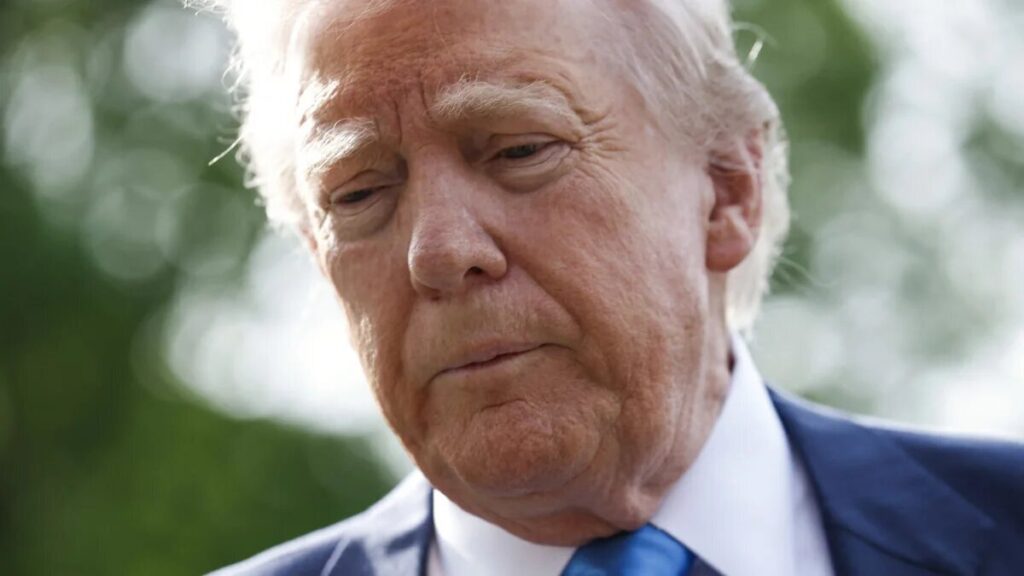TEHRAN – Iran’s foreign ministry issued a sharp rebel on Friday, denounced President Donald Trump’s new sanctions and targeted Iranian oil buyers as a repetition of “failed tactics” that undermine diplomatic efforts to resolve tensions over Tehran’s nuclear program.
The statement, following Trump’s Thursday ultimatum, threatened secondary sanctions against countries purchasing Iranian energy products, causing a rebound in global oil prices.
In Thursday’s Truth Social Post, Trump declared: “Alert: All purchases of Iranian oil or petrochemical products must stop. Now, countries or people who buy oil or petrochemicals from Iran will be subject to secondary sanctions immediately.
The announcement sparked a surge in the price of a barrel, as traders expected a tighter supply despite OPEC+’s current production bigwig.
Analysts are looking at the threat targeting China, Iran’s largest oil client. This acknowledges that the US State Department is “far more” and “far more” importing Iran’s majority oil.
The escalation of Trump’s sanctions has been cited “logistical and technical reasons” in the postponement of the fourth round of indirect talks via Oman over Tehran’s nuclear programme.
Many view this as a continuation of the US’s revived “maximum pressure” campaign, with the aim of returning in February to crippling Iran’s economy by blocking oil revenues.
Iran’s Foreign Ministry’s response has criticized Trump’s move as “illegal” and contradicted the ongoing indirect negotiations between Tehran and Washington.
Iran said Trump was engaged in three rounds of consultations with “good intentions” after he sent a letter to the leaders of the Islamic Revolution.
“Repeated its commitment to diplomacy, the Islamic Republic of Iran explicitly rejects a coercive and pressure-based approach that violates the UN Charter,” the statement read, saying the US is undermining trust through “economic pressure on (Tehran’s) trading partners.”
He emphasized that Washington’s simultaneous pursuit of sanctions and diplomacy reflects “justified skepticism” among Iranians about our intentions.
“Repeating failed tactics only brings about the same costly failures of the past,” the Foreign Ministry warned, hinting at the collapse of Trump’s previous maximum pressure campaign, which did not curb Iran’s regional impact or nuclear advancement.
“These illegal measures will not change Iran’s logical, legal or internationally grounded position,” he concluded.
Record exports are against sanctions
Since the US withdraws from the Joint Comprehensive Action Plan (JCPOA) in 2018, Iran has faced escalating sanctions targeting the oil sector, intensifying under the Trump administration’s “maximum pressure” campaign.
Despite efforts to curb Iran’s crude oil exports, despite efforts praised for driving cargo to “zero,” Tearan demonstrated responsive resilience and negated the intended effect of sanctions.
Exports in 2020 averaged an average of 1 million barrels (BPD) amidst strengthened sanctions, but recent reports revealed a dramatic surge. Iran’s crude oil exports exceeded 1.5 million bpd in 2024, marking its highest level in five years.
Iranian Minister of Oil and Petroleum Mohsen Paknejad has rejected new pressure under US sanctions.
Government spokesman Fatemeh Mohajerani said repeatedly that “oil exports cannot be stopped and will not set back from Iran’s share in the global oil market.”
Analysts argue that Trump’s latest directive faces structural challenges and that the enforcement mechanism remains unknown.
China has emerged as Iran’s leading oil buyer, with Beijing alone reportedly reaching $6.6 billion in 2020. This is a number that highlights both Iran’s adaptive economic strategy and its resilience.
The dynamic also reflects the timing of Trump’s recent escalation of sanctions and the US strategy to adopt secondary sanctions that have been unfolded against the backdrop of US-China trade tensions and tariff escalation.
Principle Resolution for Confusing Whipping
Even after the postponement of the fourth round of indirect nuclear negotiations between the two countries, Foreign Minister Araguchi said Tehran’s “determination to ensure a negotiated solution” has not changed, saying Iran is “more than ever to achieve a fair and balanced transaction.”
Many analysts highlight the changes and contradictions of Trump’s volatile policies, particularly regarding trade and sanctions.
Richard ne, a former Obama-era architect of Iranian sanctions, openly doubted the regime’s consistency and raised a pointed question about X: “Are they actually going to block all US businesses with China?
Furthermore, the Iranian Foreign Ministry’s claim that Washington’s dual strategy of sanctions and diplomacy promotes well-founded Iranian skepticism.
Following Trump’s recent announcement of new sanctions against Iran and its trading partners, analysts and social media users highlighted long-standing warnings about the challenges of Ayatollah Khamenei’s negotiations with the US and his prediction that such consultations will inevitably lead to broken promises and coercion.
The leader of the Islamic Revolution recently argued that “people issues should not be dependent on consultation,” highlighting ongoing national projects in infrastructure, energy and defense.
He also pointed out that Iran is neither overly optimistic nor overly pessimistic about the talks through Oman.
Before Trump’s diplomatic outreach and Iran’s measured response, Iranian leaders “dismissed negotiations with the “bullying nation” that attempted to control and impose their expectations.
Ayatollah Khamenei predicted that his involvement with the current US administration would not ease sanctions. “If negotiations aim to remove sanctions, this involvement with the US administration will not achieve that. Instead, it further complicates the issue of sanctions and increases pressure with the US.

